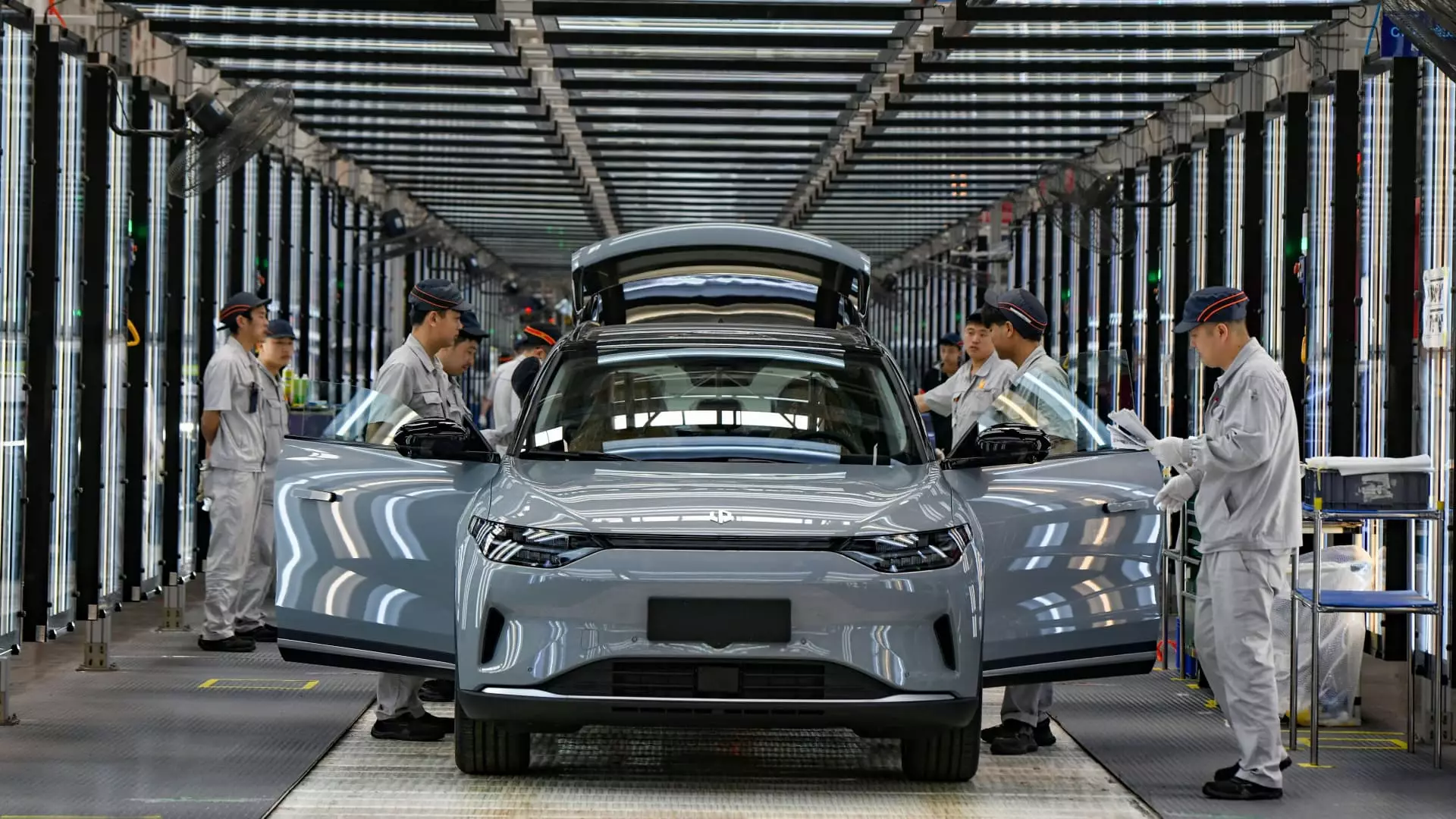In a significant twist in global trade relations, shares of major automotive companies took a sharp downward turn following the announcement of new tariffs by U.S. President Donald Trump. These tariffs, which target goods from Canada, Mexico, and China, mark a substantial escalation in ongoing tensions and threaten to upend the automotive industry. Enacted through executive orders on a recent Saturday, the tariffs set forth a 25% levy on most goods from Mexico and Canada, alongside a 10% duty on energy products and various Chinese imports. As these tariffs are set to take effect imminently, the automotive world braces itself for potential upheaval driven by political motives.
The underlying rationale articulated by President Trump emphasizes national security concerns, framing the imposition of tariffs as a defensive measure against illegal immigration and drug trafficking. However, such sweeping measures are often fraught with broader economic repercussions that can ripple through various sectors. Investors reacted swiftly: shares of prominent automotive companies plummeted as analysts weighed the potential fallout from heightened trade tensions. General Motors experienced a 6.6% drop, and Ford followed closely behind with a decline of over 4%. Similar trends were observed in Europe and Asia, where industries rely heavily on cross-border trade and manufacturing, leading to fears of a prospective trade war.
The automotive industry is particularly susceptible to the disruptions caused by tariffs due to its intricate supply chains and significant dependence on manufacturing processes dispersed across North America. Mexico plays a crucial role in this alliance, providing accessible labor and facilitating the production of various automotive components. With tariffs on such goods, automakers could face increased production costs, potentially forcing them to pass these costs onto consumers. The combined effect may result in reduced sales or an increase in vehicle pricing, adversely impacting profitability.
Furthermore, Japan-based automakers like Toyota and Nissan also found themselves in the crosshairs, with their shares witnessing a considerable dip amid fears of retaliatory measures. The vulnerabilities exposed by these tariffs underscore the precariousness of an interconnected global marketplace where political decisions can create economic chaos.
As the news of the tariffs circulated, the European Union’s response became central to the narrative. The EU pledged to take proportionate action against U.S. duties, underscoring the significance of transatlantic automotive trade. This is a vital pillar for Europe, with American consumers extensively relying on imports of European vehicles. Analysts predict that any increase in tariffs on EU cars would not only inflate prices but also precipitate a downturn in exports, hitting the European automotive sector hard.
Germany, as Europe’s economic powerhouse, faces especially daunting prospects. Major manufacturers like Volkswagen, BMW, and Mercedes-Benz have recently issued profit warnings due to sluggish demand in critical markets, including China. Now, the additional threat of U.S. tariffs casts a further shadow over their operational outlook, leading to cautious assessments regarding future profitability and planning.
In light of the looming trade conflict, automotive giants stress the necessity of maintaining open markets. Volkswagen released a statement advocating for stable trade relations, recognizing that these are vital for fostering economic competitiveness within the automotive sector. BMW echoed these sentiments, asserting that tariffs contradict the principles of free trade which stimulate innovation and economic growth. As automakers make clear their desire for constructive dialogue rather than further escalation, the feasibility of avoiding a prolonged trade conflict becomes increasingly uncertain.
The world keenly watches the developments ensuing from these tariffs. The indictment of a potential trade war prompts questions about future automotive dynamics, production costs, consumer prices, and international relationships. Stakeholders, from policymakers to factory workers, must navigate an unpredictable landscape shaped by decisions made in political corridors. With the automotive industry positioned as a significant bellwether for global trade, the ramifications of these tariffs may reverberate far beyond the boardroom and assembly line, influencing economic stability and market conditions for years to come.


Leave a Reply